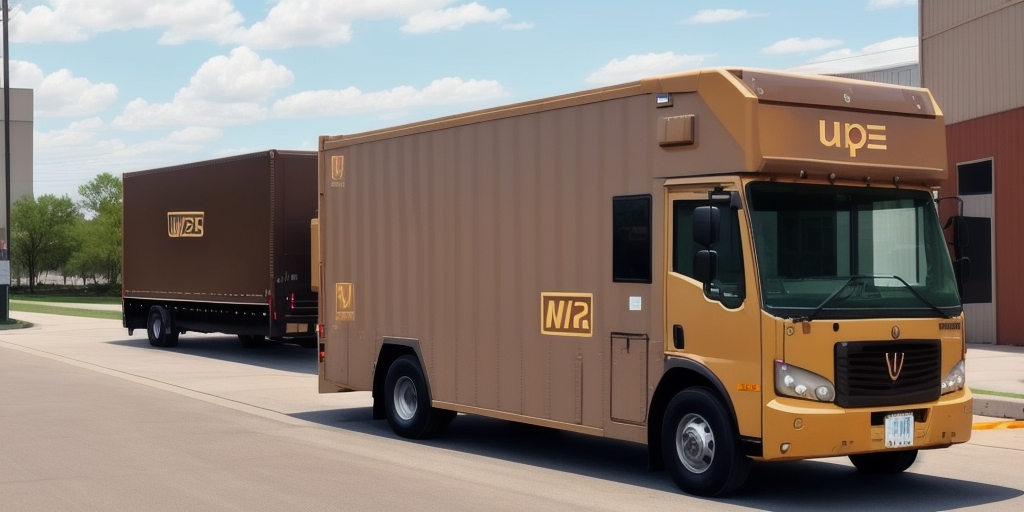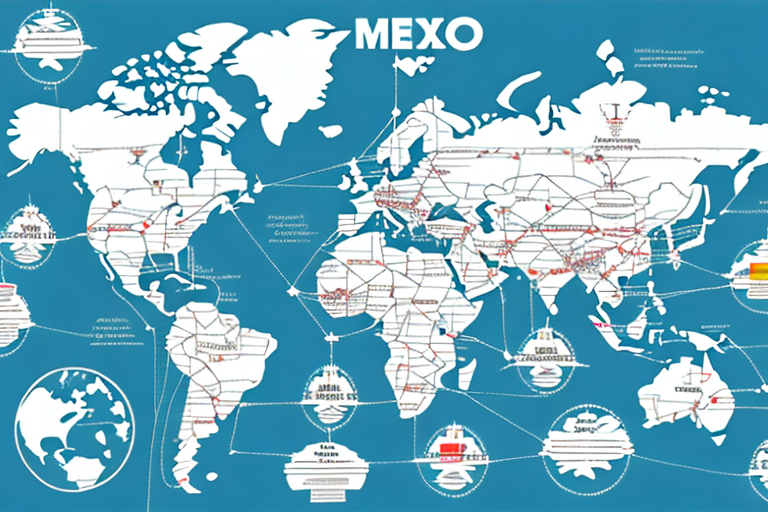Understanding First Mile Ecommerce Shipping
The first mile shipping is a critical component of the ecommerce supply chain, encompassing the movement of goods from the seller's warehouse or distribution center to the carrier's pickup location. This stage sets the foundation for the entire shipping process, influencing delivery times, costs, and overall customer satisfaction.
Definition and Importance
First mile shipping refers to the initial phase of the logistics journey, where products are dispatched from the seller's premises to the carrier. Efficient management of this stage is essential for minimizing delays, reducing shipping costs, and ensuring timely deliveries. According to a Statista report, shipping costs account for approximately 10-15% of total ecommerce expenses.
Key Components
- Order Processing: Accurate and swift processing of orders ensures that products are ready for shipping without unnecessary delays.
- Inventory Management: Maintaining optimal inventory levels prevents stockouts and overstock situations, both of which can disrupt shipping schedules.
- Packaging: Proper packaging safeguards products during transit, reducing damages and returns.
Impact of First Mile Shipping on Ecommerce Business
The efficiency of first mile shipping directly affects various aspects of an ecommerce business, from operational costs to customer perceptions.
Customer Satisfaction and Loyalty
Timely and reliable first mile shipping contributes to faster delivery times, enhancing customer satisfaction. A Forbes article highlights that 69% of consumers consider shipping speed as a key factor in their purchasing decisions.
Cost Savings
Effective management of first mile shipping can lead to significant cost reductions by optimizing transportation routes, bulk shipping, and leveraging technology for efficiency. Businesses can pass these savings onto customers or reinvest them to boost profitability.
Advantages of First Mile Shipping
Optimizing first mile shipping offers numerous benefits that enhance overall business operations and customer experience.
Control Over Shipping Process
Managing the first mile shipping allows businesses to oversee key factors such as packaging standards, labeling accuracy, and shipping timelines. This control ensures consistency and reduces the likelihood of errors.
Enhanced Tracking and Visibility
Implementing advanced tracking systems provides real-time visibility into the shipping process, enabling businesses and customers to monitor the status of orders. According to a survey by McKinsey & Company, companies with high visibility in their supply chains report 20-25% higher customer satisfaction rates.
Technological Enhancements in First Mile Shipping
Technology plays a pivotal role in streamlining first mile shipping, driving efficiency, and enabling innovation.
Automated Systems and Real-Time Tracking
Automation in order processing and inventory management reduces human errors and accelerates operations. Real-time tracking systems provide up-to-date information on shipment locations, improving reliability and transparency.
Innovations: Drones and Robotics
Emerging technologies such as drones and robotics are revolutionizing first mile shipping by enabling faster deliveries to remote areas and automating warehouse operations. Companies like Amazon are investing heavily in drone delivery to enhance their shipping capabilities.
Choosing and Managing First Mile Carriers
Selecting the right carrier is crucial for ensuring efficient and reliable first mile shipping.
Criteria for Selecting Carriers
- Service Quality: Reliability and punctuality of the carrier in pickups and deliveries.
- Technology Integration: Carriers that offer integrated tracking systems and seamless integration with ecommerce platforms.
- Cost Efficiency: Competitive pricing and flexible rate options that align with the business’s budget.
- Reputation: Established carriers with positive reviews and a history of dependable service.
Best Practices for Logistics Management
Implementing best practices such as regular carrier performance evaluations, fostering strong partnerships, and utilizing analytics to optimize shipping routes can enhance logistics management. Leveraging data-driven strategies ensures continuous improvement and adaptability in shipping operations.
Overcoming Challenges and Future Trends
Ecommerce businesses often encounter various hurdles in first mile shipping, but strategic approaches can effectively mitigate these issues.
Common Challenges and Solutions
- Transport Delays: Mitigate delays by establishing multiple carrier options and utilizing predictive analytics to anticipate disruptions.
- Inventory Management: Implement integrated inventory systems to synchronize real-time stock levels and prevent discrepancies.
- Visibility Issues: Invest in comprehensive tracking solutions to ensure complete transparency throughout the shipping process.
Future Trends in First Mile Ecommerce Shipping
The evolution of ecommerce logistics will continue to be driven by technological advancements and changing consumer expectations. Key trends include:
- Increased Automation: Further adoption of AI and machine learning to optimize routing and inventory management.
- Alternative Delivery Methods: Expansion of drone deliveries and autonomous vehicles to enhance efficiency and reach.
- Sustainable Practices: Growing emphasis on eco-friendly packaging and low-emission transportation options.
Case Studies: Successful Implementations
Leading ecommerce companies have successfully optimized their first mile shipping processes, resulting in enhanced operational efficiency and customer satisfaction. For instance, Amazon utilizes automated warehouses to expedite order fulfillment, while Walmart employs a hybrid approach combining in-store pickups and direct home deliveries to improve convenience and delivery speed.
Conclusion
Effective management of first mile shipping is pivotal for ecommerce businesses aiming to enhance customer satisfaction, reduce costs, and drive growth. By understanding the intricacies of first mile shipping, leveraging advanced technologies, selecting the right carriers, and staying abreast of industry trends, businesses can optimize their shipping processes and build a robust, scalable, and sustainable supply chain.








